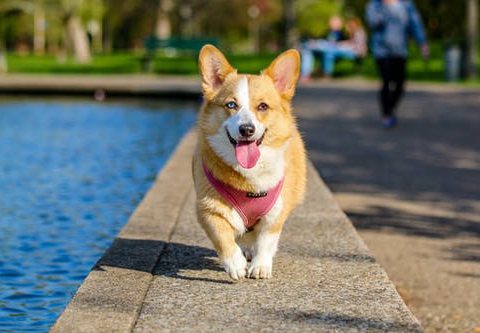Our pets are important members of our families, and their health – including their dental health – is our responsibility. In this article, we will discuss everything you need to know about pet dental exams, including how to prepare for them, what to expect during the exam, and how to care for your pet afterward. Keep reading to learn about the importance of oral care for pets and how you can keep your furry friend’s teeth and gums healthy.
Identifying the Need for a Dental Exam
Signs of Dental Problems in Pets
It is crucial to be aware of signs indicating potential dental problems in your pets. Some common signs include bad breath, drooling, difficulty eating or chewing, swollen or bleeding gums, loose or missing teeth, and facial swelling. Keep a close eye on your pet’s behavior and consult your veterinarian if you notice any of these signs.
How Often Should You Schedule a Dental Exam?
Regular dental check-ups are essential for maintaining your pet’s oral health. Most veterinarians recommend a dental exam at least once a year for pets with healthy teeth. However, if your pet has a history of dental problems or is prone to developing dental issues, your veterinarian may recommend more frequent visits.
Preparing for Your Pet’s Dental Exam
Questions to Ask Your Veterinarian
When preparing for your pet’s dental exam, make sure to ask your veterinarian important questions, such as what the exam will entail, potential risks and complications, and aftercare instructions. This way, you’ll be well-prepared and can ensure the best possible care for your pet.
Pre-Exam Health Check and Bloodwork
Your veterinarian will likely conduct a pre-exam health check, including bloodwork, to ensure your pet is healthy enough for the dental procedure. This will help determine if any underlying health issues need to be addressed before the dental exam.
What to Expect During the Pet Dental Exam
Anesthesia for Pet Dental Cleaning
During the dental exam, your pet will be placed under anesthesia to ensure their safety and comfort. Anesthesia allows the veterinarian to perform a thorough examination and perform any necessary treatments without causing any pain or stress for your pet. Your vet will closely monitor your pet’s vital signs while under anesthesia to ensure their safety throughout the procedure.
Dental X-Rays for Pets
Dental x-rays are an essential part of a comprehensive dental exam for pets. They help the veterinarian identify any hidden dental problems, such as tooth fractures, periodontal disease, and oral tumors. X-rays also provide a clear picture of your pet’s overall oral health, helping the vet determine the best course of treatment.
Dental Scaling and Polishing for Pets
During the exam, your veterinarian will perform dental scaling and polishing to remove tartar and plaque buildup from your pet’s teeth. If your pet has any significant dental issues, the vet may also perform additional treatments or procedures to address these problems.
Eye Care for Pets
In addition to dental health, it’s vital to ensure your pet receives proper eye care. Regularly examining your pet’s eyes for signs of infection or injury is crucial. If you have a cat, you may want to consider consulting a cat ophthalmologist for specialized eye care tailored to feline needs.
Pet Dental Care
Incorporating pet dental care into your pet’s dental care routine can make a significant difference in their overall oral health. Regular at-home teeth cleaning, using dental chews, and providing a dental-specific diet can help prevent plaque buildup and support your pet’s dental health between professional cleanings. Check this link to know more about veterinary dentistry.
Veterinary Surgeon
In some cases, more advanced care may be necessary to treat your pet’s dental problems. This can include consulting a veterinary surgeon for a specialized surgery for dog or cat. Veterinary surgeons can perform various procedures, including tooth extractions and treatment of advanced periodontal disease. They are well-equipped to address complicated dental issues and ensure your pet receives the best possible care.
The Recovery Process After the Dental Exam
Caring for Your Pet Post-Exam
Proper aftercare is vital for your pet’s recovery following a dental exam. Your veterinarian will provide you with specific instructions on how to care for your pet at home, which may include administering medications, monitoring for complications, and keeping your pet comfortable and stress-free.
Adjusting Your Pet’s Diet and Activity
Your pet may require a temporary change in diet or activity levels following their dental exam. Depending on the treatments performed, your veterinarian may recommend a soft or liquid diet to prevent discomfort from chewing. You may also need to limit your pet’s activity for a few days as they recover from anesthesia or dental procedures.
Monitoring for Complications
Keep a close eye on your pet after their dental exam and contact your veterinarian immediately if you notice any signs of complications. These can include persistent bleeding, severe pain, swelling, or signs of infection.
Preventative Dental Care for Pets
Preventative care is essential for maintaining your pet’s long-term dental health. This includes regular at-home oral care, such as tooth brushing, dental treats or chews, and providing a dental-specific diet. Additionally, make sure to schedule regular professional dental cleanings to keep your pet’s teeth clean and free from plaque and tartar buildup.
Signs That Your Pet May Need Additional Dental Care
Keep an eye out for signs that your pet may need additional dental care. These can include bad breath, drooling, difficulty eating or chewing, swollen or bleeding gums, loose or missing teeth, and facial swelling. If you notice any of these signs, don’t hesitate to contact your veterinarian to schedule a dental exam for your pet.
Conclusion
Maintaining your pet’s dental health is an essential aspect of their overall well-being. By staying informed about what to expect during a pet dental exam and taking the necessary steps to protect and care for your pet’s teeth, you can help ensure their health and happiness for years to come. Remember, prevention is the key to keeping your pet’s teeth and gums in the best possible condition.






